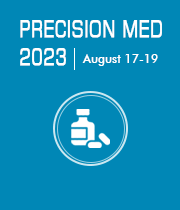Liquid biopsy
Liquid biopsy is the molecular examination of nucleic acids, subcellular structures, particularly exosomes, and, in the case of cancer, circulating tumour cells in bodily fluids. Liquid biopsy has been the subject of intense research over the last ten years in order to develop a less intrusive and more precise individualised therapy. Tissue biopsy can be supplemented or even replaced by a molecular analysis of these circulating biomarkers. Liquid biopsy has been used in clinical practise as a result of this research, particularly in oncology, prenatal screening, and transplantation. Liquid biopsy is a ground-breaking procedure that is providing previously unimaginable insights. With advances in technology and lower costs, liquid biopsy may be able to supplement medical imaging for cancer detection and staging. For cancer patients undergoing local-regional therapy, radiologists may be able to use liquid biopsy techniques to help with treatment selection and post-procedural management.
- Tumor Microenvironment
- Fluid Biopsy
- Fluid Phase Biopsy
- Cancer Biopsy
- Traditional Biopsy
- Liquid Biopsy Biomarkers
- Analytic Techniques
- Imaging and Liquid Biopsy

Bernd Blobel
University of Regensburg, Germany
Roy Gary Beran
University of New South Wales, Australia
Matthias Schwab
University of Tubingen, Germany
Thomas Webster
Interstellar Therapeutics, United States
Boris Tankhilevich
Magtera, Inc., United States
Isabella Friis Jorgensen
University of Copenhagen, Denmark


Title : The use of anti seizure medication therapeutic blood level determination to personalise the treatment of epileptic seizures especially in patients attending the accident and emergency department
Roy Gary Beran, University of New South Wales, Australia
Title : Personalized and precision medicine (PPM) can be established as a unique healthcare model through biodesign-driven and inspired biotech, translational applications. This approach aims to ensure human healthcare, wellness, and biosafety.
Sergey Suchkov, Institute for Biotech & Global Health of RosBioTech and A.I. Evdokimov MGMSU, Russian Federation
Title : Monitoring folds localization in ultra-thin transition metal dichalcogenides using optical harmonic generation
Ahmed Raza Khan, Australian National University, Australia
Title : A systematic review of regulatory approaches for Direct- To- Consumers (DTC) genetic testing
Kavitha Palaniappan, Duke-NUS Medical School, Singapore
Title : Regulatory framework of in vitro diagnostic and artificial intelligence for precision medicine
Pei Ting Sarah Chou, Regulatory Affairs Professionals Society, Taiwan
Title : Unraveling cancer stem cell signatures in circulating tumor cells of metastatic colorectal cancer: Investigating ALDH1A1 and the repurposing potential of disulfiram via scRNA-seq
Nurul Syakima Ab Mutalib, Universiti Kebangsaan Malaysia, Malaysia